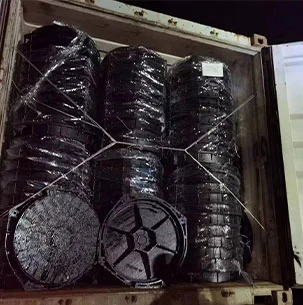
Nov . 14, 2024 17:00 Back to list
coal fired steam boiler
The Significance of Coal-Fired Steam Boilers in Energy Production
Coal-fired steam boilers have been a pivotal part of the global energy landscape for over a century, playing a crucial role in electricity generation and industrial processes. Despite the growing emphasis on renewable energy sources, coal-fired steam boilers continue to hold a significant place in many countries' energy portfolios. This article explores the operational principles, advantages, environmental challenges, and future prospects associated with coal-fired steam boilers.
At their core, coal-fired steam boilers operate on a straightforward principle they burn coal to produce steam, which then drives turbines to generate electricity or provides heat for industrial applications. The combustion process involves pulverizing coal to a fine powder and mixing it with air before it is fed into a furnace. The heat generated from this combustion heats water in a boiler, converting it into steam. The steam is then superheated and directed towards turbines, where it expands and spins the turbine blades, ultimately generating electricity.
The Significance of Coal-Fired Steam Boilers in Energy Production
Moreover, coal-fired steam boilers have proven to be cost-effective in many situations. The established infrastructure, combined with the relatively low cost of coal compared to other fossil fuels, makes coal a financially attractive option for many power plants. The technology behind coal-fired steam boilers has also evolved, leading to improved efficiencies and reduced operational costs.
coal fired steam boiler

However, the use of coal-fired steam boilers is not without its challenges, particularly concerning environmental impact. The combustion of coal results in the emission of greenhouse gases, primarily carbon dioxide (CO2), contributing to climate change. Additionally, coal combustion produces pollutants such as sulfur dioxide (SO2), nitrogen oxides (NOx), and particulate matter, which can cause air quality issues and health problems.
In response to these environmental concerns, many countries are implementing stricter regulations on emissions from coal-fired power plants. Technologies such as flue gas desulfurization, selective catalytic reduction, and electrostatic precipitators have been developed to reduce harmful emissions. Furthermore, the addition of carbon capture and storage (CCS) technologies presents a potential way to mitigate the carbon footprint of coal-fired steam boilers.
The future of coal-fired steam boilers is a subject of considerable debate. While some argue that transitioning to cleaner energy sources is essential for combating climate change, others emphasize the importance of coal in ensuring energy security and economic stability. Many countries are exploring a diversified energy strategy that includes a mix of coal, renewable energies, and nuclear power, creating a balanced approach to energy production.
In conclusion, coal-fired steam boilers remain an essential component of the global energy infrastructure. They offer reliability, cost-effectiveness, and scalability, making them attractive to many power producers. However, addressing environmental concerns will be crucial in determining their future role in the energy sector. As technology advances and regulatory pressures increase, coal-fired steam boilers may evolve to become more environmentally friendly, ensuring that they can continue to contribute to global energy needs in a sustainable manner.
-
High-Efficiency Commercial Oil Fired Steam Boiler for Industry
NewsJul.30,2025
-
High-Efficiency Biomass Fired Thermal Oil Boiler Solutions
NewsJul.30,2025
-
High Efficiency Gas Fired Thermal Oil Boiler for Industrial Heating
NewsJul.29,2025
-
High-Efficiency Gas Fired Hot Water Boiler for Sale – Reliable & Affordable
NewsJul.29,2025
-
High Efficiency Biomass Fired Hot Water Boiler for Industrial and Commercial Use
NewsJul.29,2025
-
High-Efficiency Biomass Fired Hot Water Boiler for Industrial Use
NewsJul.28,2025
Related PRODUCTS






















